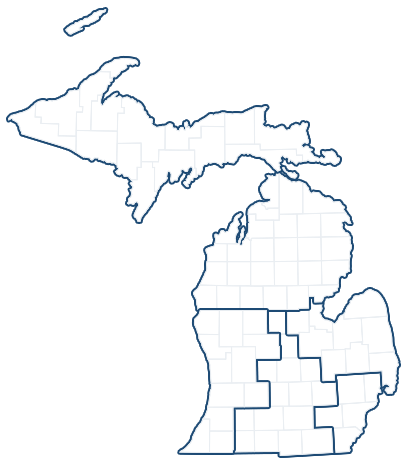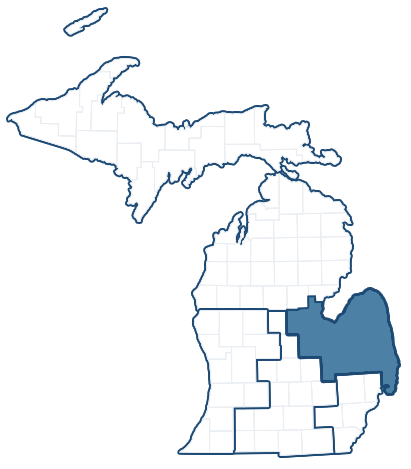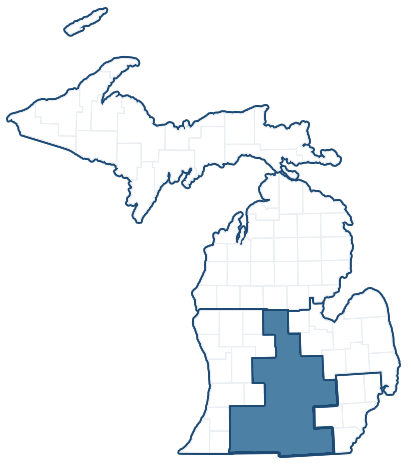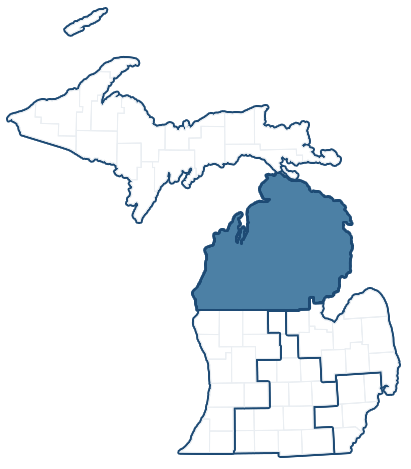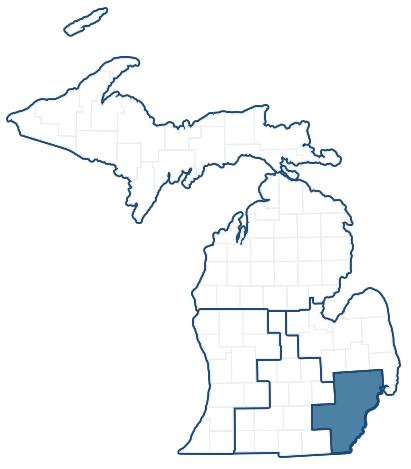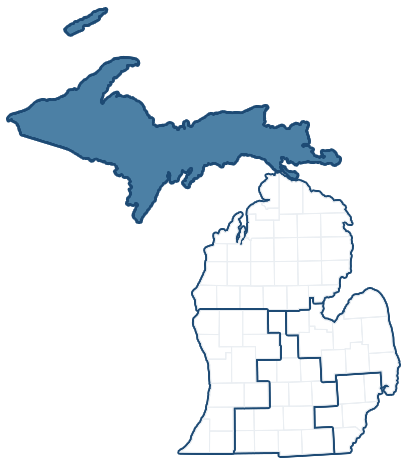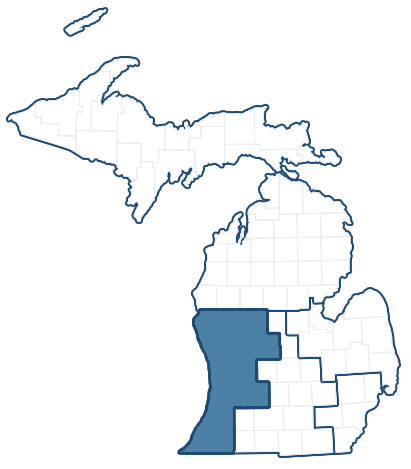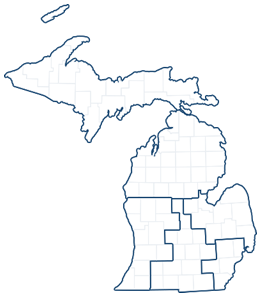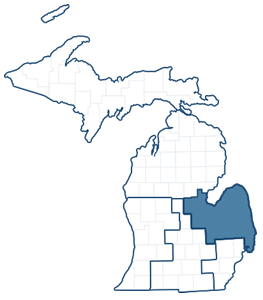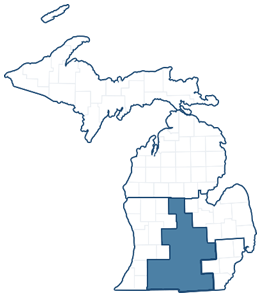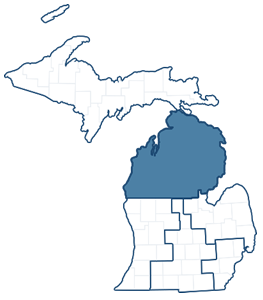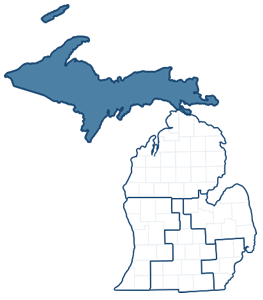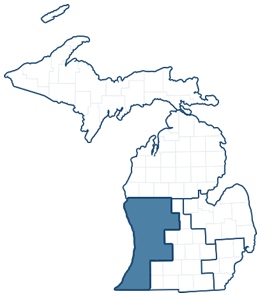Supporting Michigan’s Agricultural Economy
Senator Debbie Stabenow is a champion for Michigan agriculture and rural communities. As Chair of the U.S. Senate Committee on Agriculture, Nutrition, and Forestry, she wrote the bipartisan 2014 Farm Bill, which streamlined more than 100 programs while making historic investments in land and water conservation, local food systems, and specialty crops. As the current Chairwoman of the Committee, she built on that progress by co-authoring the historic 2018 Farm Bill, which passed on a strong bipartisan Senate vote of 87-13 – the most votes in favor of a Farm Bill in history.
The bipartisan 2018 Farm Bill strengthens Michigan’s agricultural economy, which is the state’s second-largest industry, supporting one in four jobs. The bill also has a major impact in protecting Michigan’s Great Lakes, investing in our small towns and rural communities, promoting Michigan forestry, growing local food economies, and providing healthy food for families.
Providing Certainty for Michigan Farmers
From bad weather to volatile markets, farming is one of the riskiest businesses out there – which is why farmers need a strong safety net. The 2018 Farm Bill equips Michigan farmers with risk management tools that help them stay afloat during unexpected disasters, while also allowing them to tap into new markets to boost their bottom line.
Senator Stabenow expanded crop insurance to improve access for veterans, beginning farmers, and Michigan’s fruit and vegetable growers. Additionally, she spearheaded dramatic improvements for dairy farmers by creating a new dairy safety net offering flexible and affordable coverage options. The bill also includes continued support for specialty crop growers – which Senator Stabenow first authored in a new title in the 2008 Farm Bill – that will strengthen Michigan’s diverse fruit and vegetable industry, increase productivity, and drive demand for the food they grow.
Growing Michigan’s Local Food Economy
The strength of the Michigan agricultural economy is rooted in its diversity. The 2018 Farm Bill recognizes the importance of supporting all farms of all sizes – no matter what they grow or where they grow it.
Senator Stabenow secured permanent support for farmers markets and local food systems to help Michigan farmers sell their products to their neighbors, while making healthy, locally-grown food more accessible to Michigan families. The bill also recognizes urban agriculture for the first time and creates a new Office of Urban Agriculture at the USDA to serve as a resource and advocate for Michigan’s urban farmers. To strengthen Michigan’s fast-growing organic industry, the bill permanently invests in organic research and helps farmers transition into organic production. The bill also recognizes the future of Michigan agriculture by creating permanent training and outreach resources for beginning farmers, which will help Michigan’s minority, veteran, and new farmers start careers on the farm.
Protecting the Great Lakes and Promoting Outdoor Recreation
As co-chair of the Senate Great Lakes Caucus, Senator Stabenow is passionate about protecting Michigan’s Great Lakes, streams, and rivers. The bipartisan 2018 Farm Bill makes significant investments in the conservation of land, water, and wildlife habitat to support hunting, fishing, and other outdoor recreation. Through targeted conservation efforts, the Farm Bill protects these precious natural resources and preserves our Michigan way of life.
The bill strengthens successful regional conservation partnerships, which will leverage nearly $3 billion in private investment over the next decade for projects that will help farmers improve water quality and reduce nutrient runoff into the rivers and streams that feed into Lake Erie and Saginaw Bay. The bill additionally supports Michigan’s outdoor recreation economy by expanding acres in the Conservation Reserve Program and creating additional public access on private land for hunting and fishing.
Strengthening Michigan’s Small Towns and Rural Communities
Michigan’s small towns and rural communities need resources to thrive in the 21st Century. The bipartisan 2018 Farm Bill has made critical investments to spur economic development and improve quality of life for families.
Investment in rural water infrastructure will help address harmful contaminants like PFAS and ensure Michigan households and businesses have clean drinking water. Senator Stabenow led the effort to expand high-speed internet access in order to help connect nearly 1 million people in rural Michigan who lack access. The bill provides resources to fight the opioid epidemic and will expand telemedicine and treatment facilities in rural Michigan communities. Also, the bill continues investments to promote renewable energy, which has helped thousands of farmers, ranchers, and rural business owners install energy efficient systems.
Improving Food Access for Families
Just as the Farm Bill provides a safety net for Michigan farmers, it also includes a safety net for families. Building on the 2014 Farm Bill, the bipartisan 2018 Farm Bill strengthens the integrity of food assistance, while preserving food access for families. The bill makes permanent investments in “Double Up” bucks that will help SNAP families purchase Michigan-grown fruits and vegetables and establishes a new produce prescription program to strengthen the relationship between food and health care. The bill reduces the paperwork burden on seniors needing food assistance and improves nutrition education for families and children. The bill also provides new job training opportunities that will help SNAP participants find and keep good-paying jobs, while strengthening oversight of nutrition assistance programs to ensure every dollar goes to families in need.



